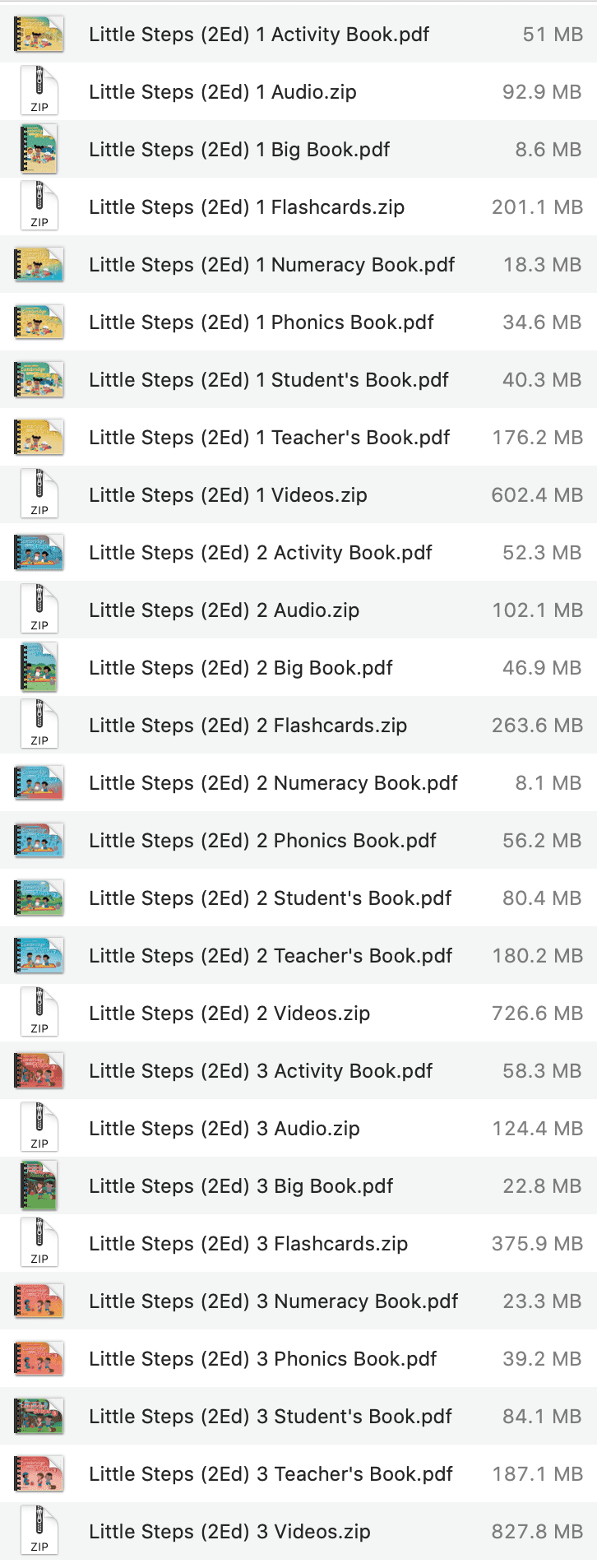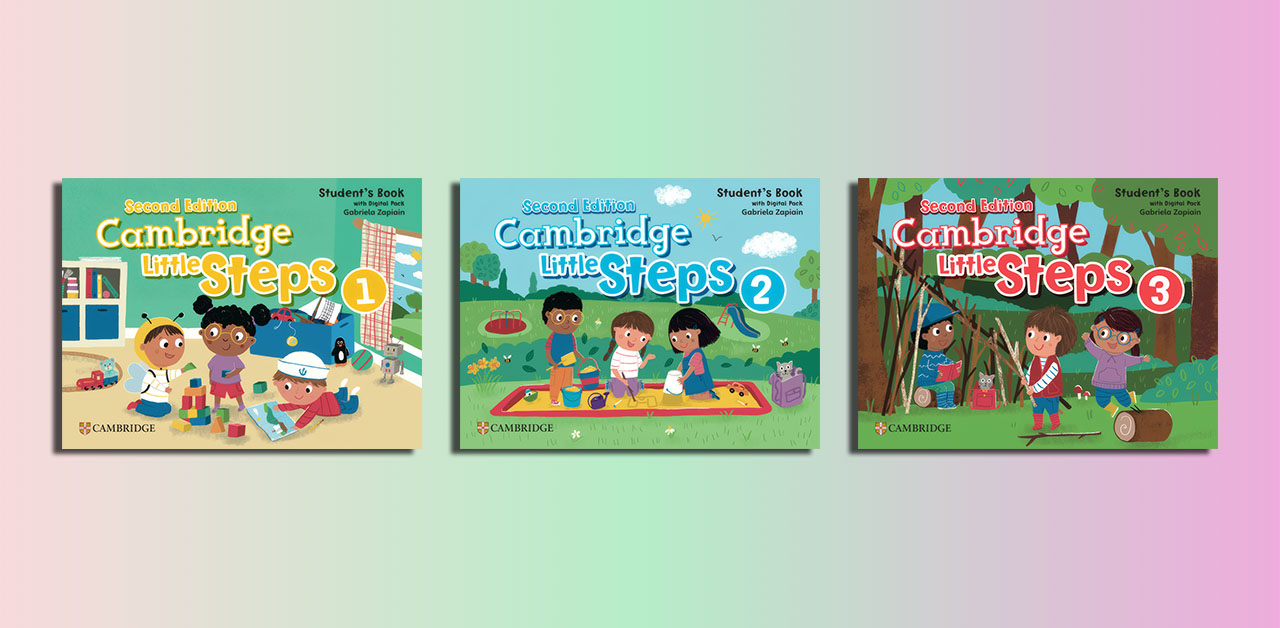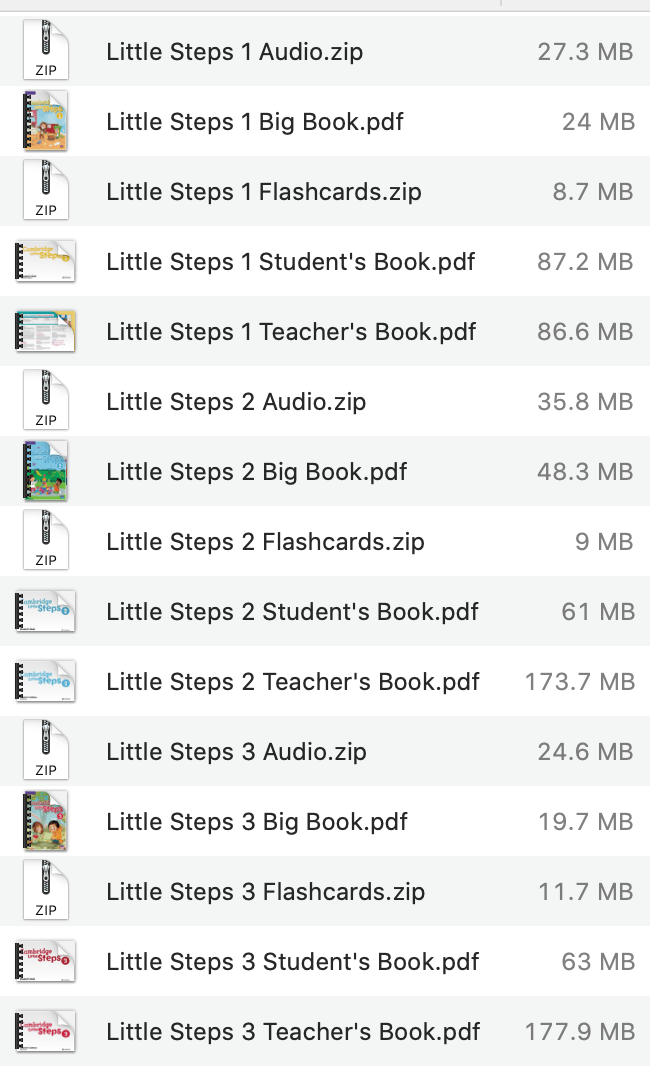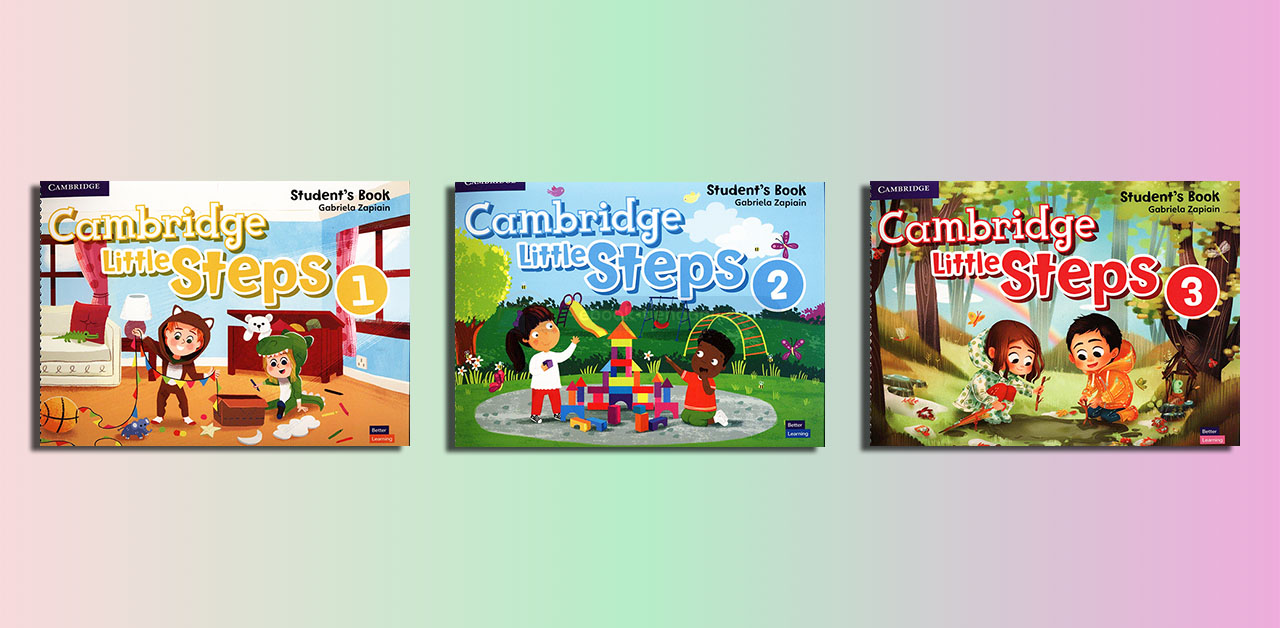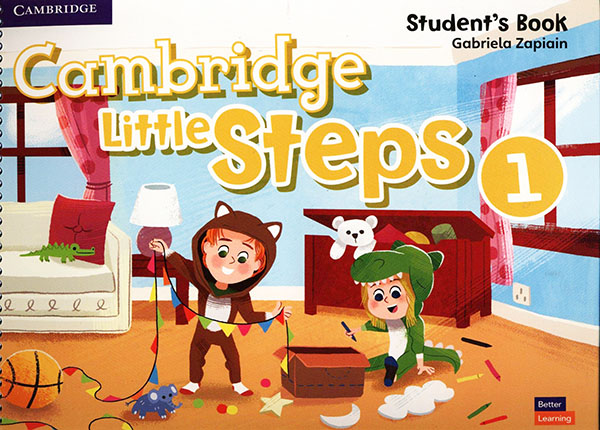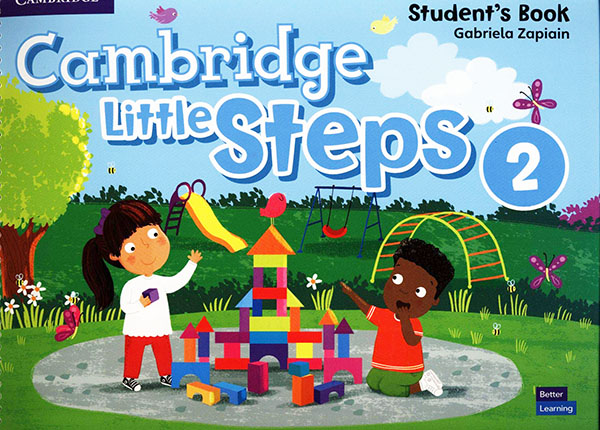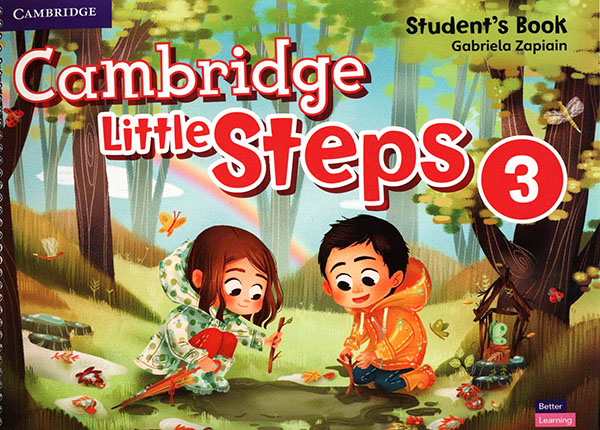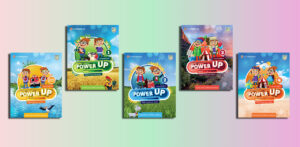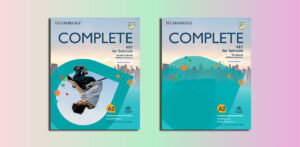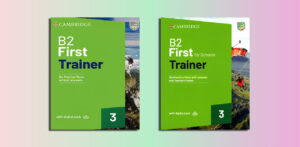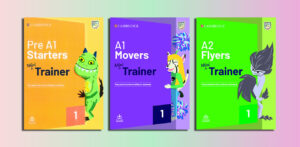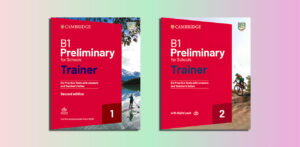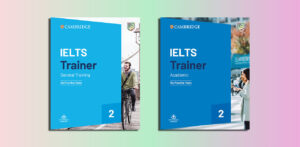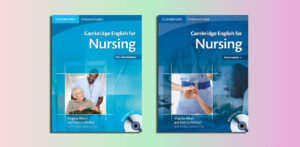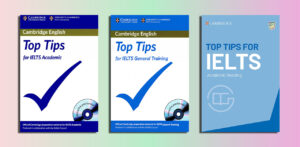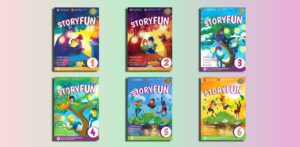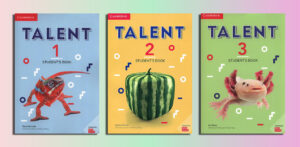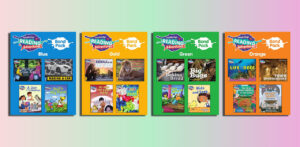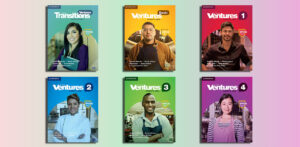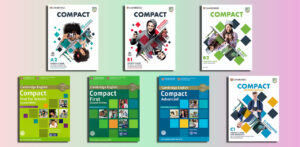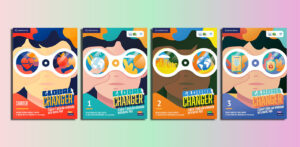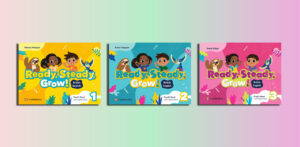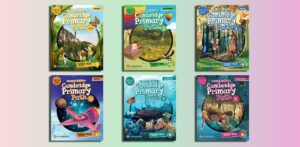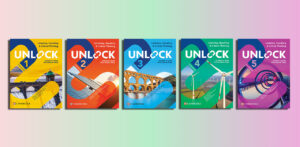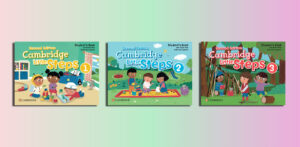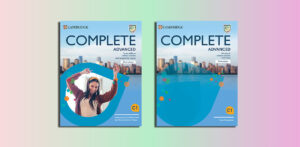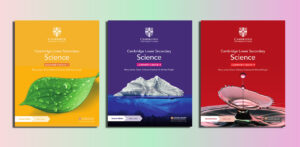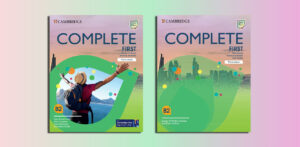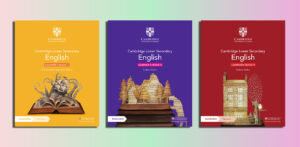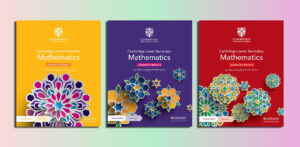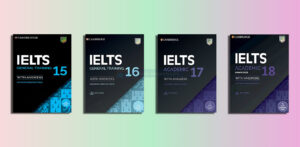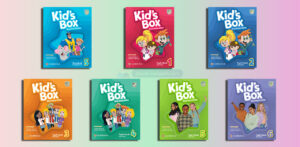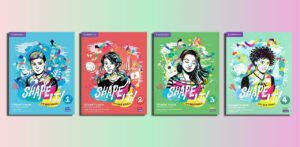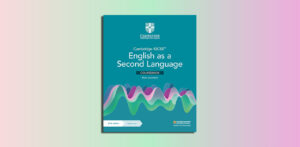Cambridge, Download, Presentation
Cambridge Little Steps 2nd Edition Pdf Presentation Plus (Pre A1)
Little Steps Second Edition
Presentation Plus
Little Steps 2Ed 1 Presentation Plus (Windows / Mac)
Little Steps 2Ed 2 Presentation Plus (Windows / Mac)
Little Steps 2Ed 3 Presentation Plus (Windows / Mac)
PDFs, Resources
Level 1
Little Steps (2Ed) 1 Activity Book.pdf – Sample: Click
Little Steps (2Ed) 1 Audio.zip
Little Steps (2Ed) 1 Big Book.pdf
Little Steps (2Ed) 1 Flashcards.zip
Little Steps (2Ed) 1 Numeracy Book.pdf
Little Steps (2Ed) 1 Phonics Book.pdf
Little Steps (2Ed) 1 Student’s Book.pdf – Sample: Click
Little Steps (2Ed) 1 Teacher’s Book.pdf
Little Steps (2Ed) 1 Videos.zip
Level 2
Little Steps (2Ed) 2 Activity Book.pdf – Sample: Click
Little Steps (2Ed) 2 Audio.zip
Little Steps (2Ed) 2 Big Book.pdf
Little Steps (2Ed) 2 Flashcards.zip
Little Steps (2Ed) 2 Numeracy Book.pdf
Little Steps (2Ed) 2 Phonics Book.pdf
Little Steps (2Ed) 2 Student’s Book.pdf – Sample: Click
Little Steps (2Ed) 2 Teacher’s Book.pdf
Little Steps (2Ed) 2 Videos.zip
Level 3
Little Steps (2Ed) 3 Activity Book.pdf – Sample: Click
Little Steps (2Ed) 3 Audio.zip
Little Steps (2Ed) 3 Big Book.pdf
Little Steps (2Ed) 3 Flashcards.zip
Little Steps (2Ed) 3 Numeracy Book.pdf
Little Steps (2Ed) 3 Phonics Book.pdf
Little Steps (2Ed) 3 Student’s Book.pdf – Sample: Click
Little Steps (2Ed) 3 Teacher’s Book.pdf
Little Steps (2Ed) 3 Videos.zip
| Name | Price | Buy |
|---|---|---|
| Cambridge Little Steps 1 PDFs, Resources (Second Edition) | $8 | |
| Cambridge Little Steps 2 PDFs, Resources (Second Edition) | $8 | |
| Cambridge Little Steps 3 PDFs, Resources (Second Edition) | $8 | |
| Cambridge Little Steps PDFs, Resources - All 3 Levels (2ed) | Original price was: $24.$20Current price is: $20. |
| Name | Price | Buy |
|---|---|---|
| Little Steps 1 Presentation Plus Windows (Second Edition) | $8 | |
| Little Steps 2 Presentation Plus Windows (Second Edition) | $8 | |
| Little Steps 3 Presentation Plus Windows (Second Edition) | $8 | |
| Little Steps Presentation Plus Windows - All 3 Levels (2ed) | Original price was: $24.$20Current price is: $20. | |
| Little Steps 1 Presentation Plus MAC (Second Edition) | $8 | |
| Little Steps 2 Presentation Plus MAC (Second Edition) | $8 | |
| Little Steps 3 Presentation Plus MAC (Second Edition) | $8 | |
| Little Steps Presentation Plus Mac - All 3 Levels (2ed) | Original price was: $24.$20Current price is: $20. |
Little Steps Second Edition Presentation Plus Video Demo (Offline iTools)
Little Steps 1st Edition
Presentation Plus
Little Steps 1 Presentation Plus (Windows)
Little Steps 2 Presentation Plus (Windows)
Little Steps 3 Presentation Plus (Windows)
PDFs, Resources
Level 1
Little Steps 1 Audio.zip
Little Steps 1 Big Book.pdf – Sample: Click
Little Steps 1 Flashcards.zip
Little Steps 1 Student’s Book.pdf – Sample: Click
Little Steps 1 Teacher’s Book.pdf
Level 2
Little Steps 2 Audio.zip
Little Steps 2 Big Book.pdf – Sample: Click
Little Steps 2 Flashcards.zip
Little Steps 2 Student’s Book.pdf – Sample: Click
Little Steps 2 Teacher’s Book.pdf
Level 3
Little Steps 3 Audio.zip
Little Steps 3 Big Book.pdf – Sample: Click
Little Steps 3 Flashcards.zip
Little Steps 3 Student’s Book.pdf – Sample: Click
Little Steps 3 Teacher’s Book.pdf
| Name | Price | Buy |
|---|---|---|
| Little Steps 1 PDFs, Resources (1st Edition) | $4 | |
| Little Steps 2 PDFs, Resources (1st Edition) | $4 | |
| Little Steps 3 PDFs, Resources (1st Edition) | $4 | |
| Little Steps PDFs, Resources - All 3 Levels (1st Edition) | Original price was: $12.$8Current price is: $8. | |
| Little Steps 1 Presentation Plus Windows (1st Edition) | $5 | |
| Little Steps 2 Presentation Plus Windows (1st Edition) | $5 | |
| Little Steps 3 Presentation Plus Windows (1st Edition) | $5 | |
| Little Steps Presentation Plus Windows - All 3 Levels (1ed) | Original price was: $15.$10Current price is: $10. |
Little Steps 1st Edition Presentation Plus Demo (Offline iTools)
Overview of the “Little Steps”
Contents
| ✅ Coursebook: | Little Steps |
| ✅ Author: | Gabriela Zapiain |
| ✅ English type: | American English |
| ✅ Levels: | Pre A1 |
| ✅ Publisher: | Cambridge University Press |
| ✅ For: | Preschool |
| ✅ Publication year: | 2019 |
“Cambridge Little Steps” is a three-level English language and early literacy course designed by Cambridge for very young learners. This course is unique in its approach, focusing on three key learning pillars – early literacy, oracy (oral skills), and creativity. It’s structured to prepare young children for a future filled with opportunities and to lay a solid foundation for their journey into primary education.
Authors: Gabriela Zapiain
CEFR Levels: A0, targeting the very beginning stages of language learning.
Key Features:
- Pre-literacy Skills Development: The course emphasizes preparing young learners to start reading and writing by working on pre-literacy skills through illustrated stories and phonics.
- Oracy Development: Focuses on developing verbal and nonverbal skills to get children used to communicating confidently with peers and adults.
- Creativity and Problem Solving: Activities in the course encourage children to explore ideas, work together, and express themselves creatively, starting to develop problem-solving skills.
- Digital Learning Environment: Cambridge Little Steps provides a new digital learning environment, making materials easily accessible on various devices.
- Life Skills Focus: ‘Life Skills’ sections help develop competencies such as teamwork, decision-making, social responsibilities, and presentation skills.
- Culturally Enriching Content: Includes illuminating articles and videos that activate learners’ curiosity about the world, covering a wide selection of cultural experiences.
- Exploration of Big Questions: Each unit includes a ‘Big Question’ to investigate, encouraging inquiry and exploration from various angles.
Components for Students:
- Student’s Book with eBook
- Workbook with Digital Pack
Components for Teachers:
- Teacher’s Book with Digital Pack
- Class CD
- Cambridge English Portal
- Test Generator
“Cambridge Little Steps” offers a well-rounded approach to early language education, combining language skills development with creativity and early literacy. It’s an excellent choice for teachers and parents looking to introduce very young learners to English in an engaging, effective, and developmentally appropriate way.
Who is suitable for ‘Little Steps’?
“Cambridge Little Steps” is a specifically tailored English language and literacy course designed for a particular group of learners:
Very Young Learners:
- The course is ideal for preschool children, typically in the age range of 3 to 5 years. It’s designed for learners who are at the very beginning of their educational journey.
Children Preparing for Primary Education:
- “Little Steps” is suited for children who are preparing to transition into primary school. The course lays the foundational groundwork necessary for success in primary education.
Learners New to English:
- The course is designed for children who are starting to learn English, with activities tailored to introduce the language at a beginner level (A0 in the CEFR).
Young Learners Developing Early Literacy Skills:
- “Little Steps” is appropriate for children who are beginning to develop literacy skills, including pre-reading and writing skills, as it emphasizes early literacy through storytelling and phonics.
Learners Benefitting from a Multisensory Approach:
- The course is well-suited for young children who learn best through a multisensory approach, incorporating visual, auditory, and kinesthetic learning styles.
Children Who Require Development in Oracy:
- “Little Steps” focuses on developing verbal and nonverbal communication skills, making it suitable for children who are starting to build their speaking and listening abilities.
Young Learners with a Focus on Creativity:
- The course includes activities that encourage creativity and imaginative expression, ideal for children who show an interest in creative activities and need to develop problem-solving skills.
Children in a Pre-School Setting:
- “Little Steps” is suitable for use in preschool settings, early childhood education centers, or at home, providing educators and parents with a structured program to guide young learners.
In summary, “Cambridge Little Steps” is particularly suitable for very young learners at the start of their language learning journey, especially those who are preparing for primary education and require a foundation in English, early literacy, and oracy skills. The course’s playful, creative, and multisensory approach makes it an ideal choice for this age group.
The benefits of ‘Little Steps’
“Cambridge Little Steps” offers numerous benefits tailored to the specific developmental needs of very young learners. This English language and literacy course is designed to lay a solid foundation for children’s future educational success. Here are some key benefits:
Foundation in Early Literacy:
- The course emphasizes pre-literacy skills, preparing children to start reading and writing. This includes exposure to illustrated stories and phonics, which are essential in developing early reading skills.
Oracy Development:
- “Little Steps” focuses on developing verbal and nonverbal communication skills, helping children to communicate confidently with peers and adults. This fosters effective oral communication skills from an early age.
Creativity and Problem-Solving:
- The course encourages children to explore ideas, work together, and express themselves creatively, thereby nurturing their innate creativity and problem-solving abilities.
Preparation for Primary Education:
- “Little Steps” lays the groundwork for successful transition into primary education, ensuring that children are well-prepared academically and socially.
Development of Social and Emotional Skills:
- The course includes activities that develop emotional competencies and values, helping children to understand and manage emotions, as well as interact positively with others.
Culturally Enriching Content:
- With a variety of cultural experiences presented through stories and videos, the course enhances children’s cultural awareness and broadens their understanding of the world.
Inquiry-Based Learning:
- The inclusion of ‘Big Questions’ in each unit encourages children to investigate and explore topics from different perspectives, promoting curiosity and inquiry-based learning.
Multisensory Learning Experience:
- “Little Steps” utilizes a multisensory approach to learning, engaging children through sight, sound, and action, which is crucial for young learners’ development.
Confidence in Communication:
- The focus on early oracy and literacy skills builds children’s confidence in using language, both in speaking and listening, as well as in reading and writing.
Engagement and Enjoyment:
- Activities like creative drama, music, and games make learning enjoyable, ensuring that children are engaged and motivated.
Support for Teachers and Parents:
- The course offers comprehensive support for educators and parents, including practical ideas for classroom and home, ensuring effective implementation of the program.
Foundation for Lifelong Learning:
- By developing key skills in literacy, oracy, and creativity, “Little Steps” sets children on a path towards lifelong learning and academic success.
In summary, “Cambridge Little Steps” is an effective early learning program that not only introduces young children to the English language but also develops critical foundational skills in literacy, communication, and creative thinking, all essential for their future academic and personal success.
Effective teaching and learning strategies for ‘Little Steps’
Effectively teaching and learning with “Cambridge Little Steps” involves strategies that align with the course’s focus on early literacy, oracy, and creativity, and are tailored to the developmental needs of very young learners. Here are some effective strategies for utilizing “Little Steps” in teaching and learning:
Focus on Pre-Literacy Skills:
- Engage children in activities that develop pre-reading and writing skills, such as identifying letters, sounds, and simple words, and understanding basic story structures.
Encourage Oracy Development:
- Include plenty of opportunities for children to speak and listen in a variety of contexts. Activities can include simple storytelling, singing songs, and following instructions.
Promote Creativity:
- Use creative activities such as drawing, role-playing, and imaginative games to encourage creative expression and problem-solving skills.
Use Multisensory Learning Approaches:
- Incorporate activities that engage multiple senses to enhance learning. This can include tactile activities, visual aids, and auditory exercises like songs and chants.
Interactive Storytelling:
- Utilize the illustrated stories in “Little Steps” to captivate children’s interest. Read stories aloud, discuss the content, and ask questions to improve comprehension and vocabulary.
Incorporate Phonics Instruction:
- Teach phonics in an engaging and age-appropriate manner to help children understand the relationship between letters and sounds.
Develop Social and Emotional Skills:
- Use activities from “Little Steps” to teach values, empathy, and how to express emotions. Group activities can also foster teamwork and cooperation.
Nurture Curiosity and Inquiry:
- Encourage children to ask questions and explore ideas. The ‘Big Questions’ in each unit can be a great way to stimulate curiosity and critical thinking.
Use Technology and Digital Resources:
- Employ the digital resources provided with “Little Steps” to supplement and enhance the learning experience. This can include interactive eBooks and educational apps.
Build a Supportive Learning Environment:
- Create a classroom atmosphere that is supportive, nurturing, and conducive to learning. This includes establishing routines and creating a safe space for exploration and expression.
Parental Involvement:
- Encourage parents to participate in their child’s learning process. Share tips and resources from “Little Steps” for activities they can do at home.
Regular Assessment and Feedback:
- Conduct regular informal assessments to track children’s progress and provide feedback. This can be through observations, participation in activities, and understanding of stories and songs.
Encourage Language Use in Context:
- Create opportunities for children to use language in meaningful contexts, such as describing objects, talking about their experiences, or participating in classroom routines.
Celebrate Small Achievements:
- Acknowledge and celebrate children’s achievements, no matter how small, to boost their confidence and motivation.
By integrating these strategies, educators can effectively harness the strengths of “Cambridge Little Steps,” creating a dynamic, engaging, and nurturing learning environment for very young learners.
Engaging English Language Learning Series for Young Learners: Creative and Interactive Alternatives to Cambridge Little Steps
For learners seeking alternatives to the “Cambridge Little Steps” series, which is designed to introduce young learners to English through engaging stories, playful activities, and foundational language development, several educational series offer similar blends of engaging content and early language learning. Here are notable series that provide comprehensive English language experiences for young children:
- “Family and Friends” by Oxford University Press: Combines strong language development with a structured approach to reading, writing, and arithmetic skills, using fun stories and songs alongside varied activities to engage young learners.
- “Our World” by National Geographic Learning: Utilizes beautiful photography and fascinating content from National Geographic to introduce young learners to English alongside global cultures, animals, and the natural world, encouraging exploration and curiosity.
- “Super Safari” by Cambridge University Press: Designed for pre-primary children, this series introduces English through stories, songs, and plenty of opportunities for play and creativity, fostering a sense of exploration and discovery.
- “Big Fun” by Pearson Education: Aimed at early learners, Big Fun teaches young learners English by exploring the world around them through play, stories, and involvement in arts and crafts, which helps stimulate their creativity and language acquisition.
- “Pockets” by Pearson Education: Tailored for very young learners, Pockets introduces English through engaging songs, stories, and hands-on activities, focusing on themes that are relevant and engaging to preschool children.
- “Show and Tell” by Oxford University Press: Integrates language learning with developing social and emotional skills, using themes that resonate with young learners to help them express themselves in English while exploring their environment.
- “Footprints” by Macmillan Education: Offers stories and activities that teach English while imparting values and environmental awareness, making it a holistic learning experience for young children.
- “Let’s Go” by Oxford University Press: Known for its success in combining language learning with engaging songs, games, and puzzles, Let’s Go makes learning English fun and effective for children, incorporating themes of exploration and discovery.
- “Hip Hip Hooray!” by Pearson Education: Features colorful and engaging content designed for young learners, with a focus on building foundational language skills through songs, games, and craft activities.
- “English Time” by Oxford University Press: A six-level course that offers a communicative approach to English learning, enriched with songs, games, and stories to build young learners’ confidence and interest in English.
- “Jump Aboard” by Macmillan Education: Another fun, themed series for young learners that combines English learning with adventure and creative activities, aiming to foster a love of language and learning.
- “Magic Time” by Oxford University Press: This two-level course for young learners bridges to “English Time,” providing a gentle introduction to key English vocabulary and structures through songs, games, and magical themes.
- “Balloon” by Helbling Languages: Offers a gentle introduction to English for young learners, focusing on simple vocabulary and phrases through stories, songs, and games designed to make learning English enjoyable and accessible.
- “Cookie and Friends” by Oxford University Press: A playful and gentle introduction to English for the youngest learners, focusing on simple vocabulary and phrases through engaging stories and characters, along with songs and crafts.
- “Treetops” by Oxford University Press: Aimed at older pre-primary and primary school children, this series uses stories, songs, and activities to develop not only English skills but also cross-curricular knowledge.
- “Splash!” by National Geographic Learning: Introduces English through themes of nature and the environment, utilizing National Geographic content to spark curiosity and engagement in young learners while teaching language skills.
These series offer a variety of approaches to language learning, ensuring there’s something to cater to the different interests and learning styles of young learners. Each series is crafted to engage children through interactive content, encouraging them to learn English while also developing a broad range of cognitive and social skills.

